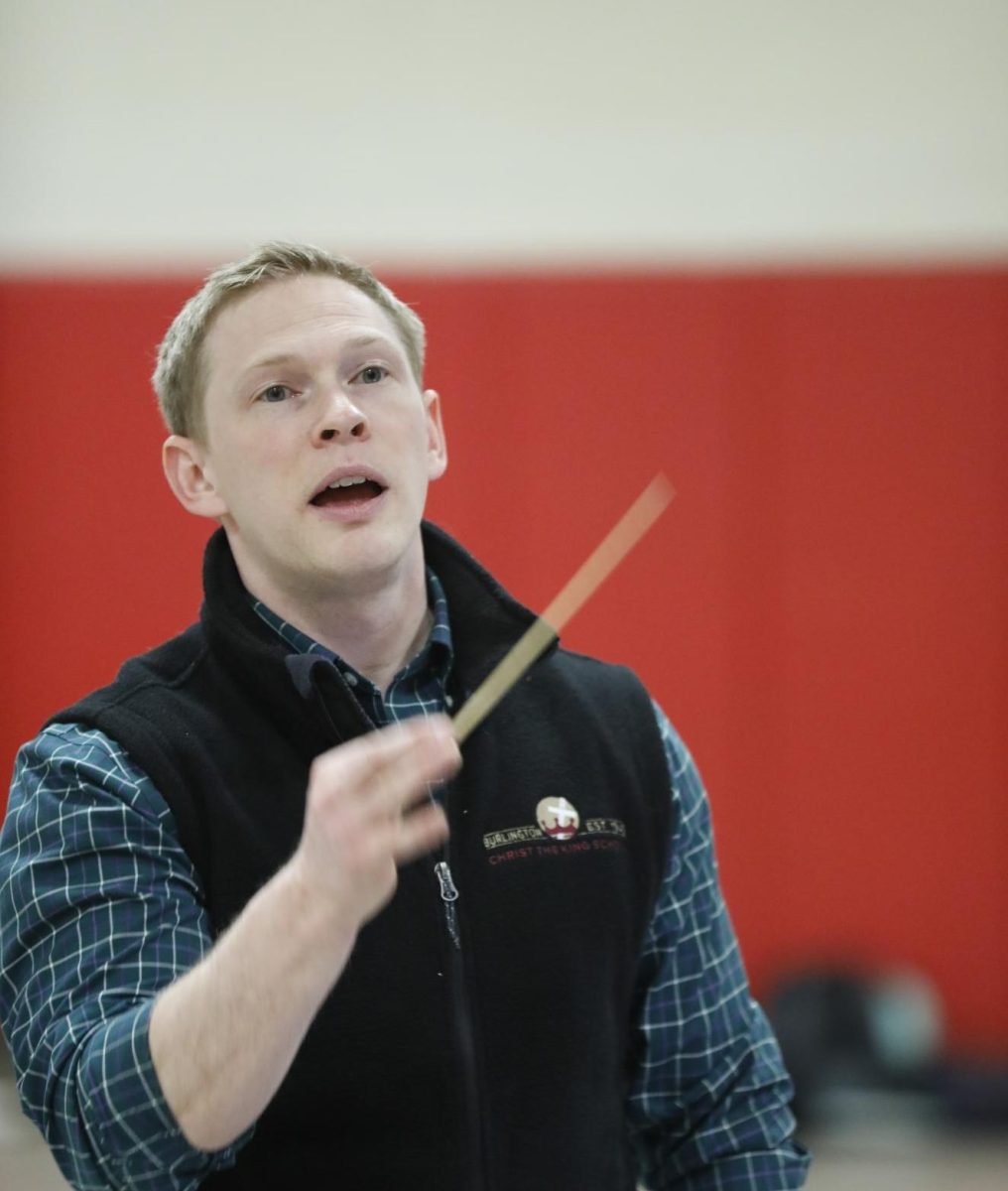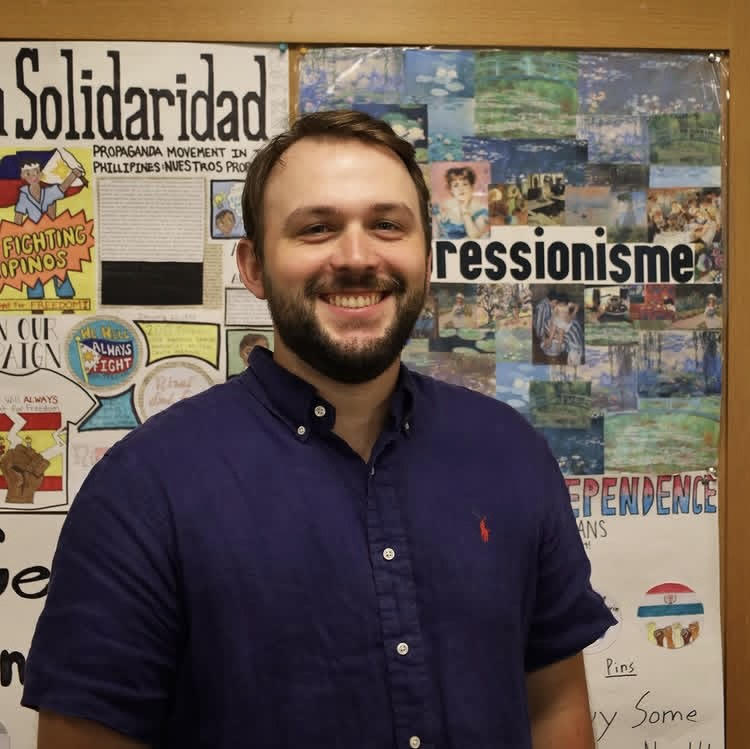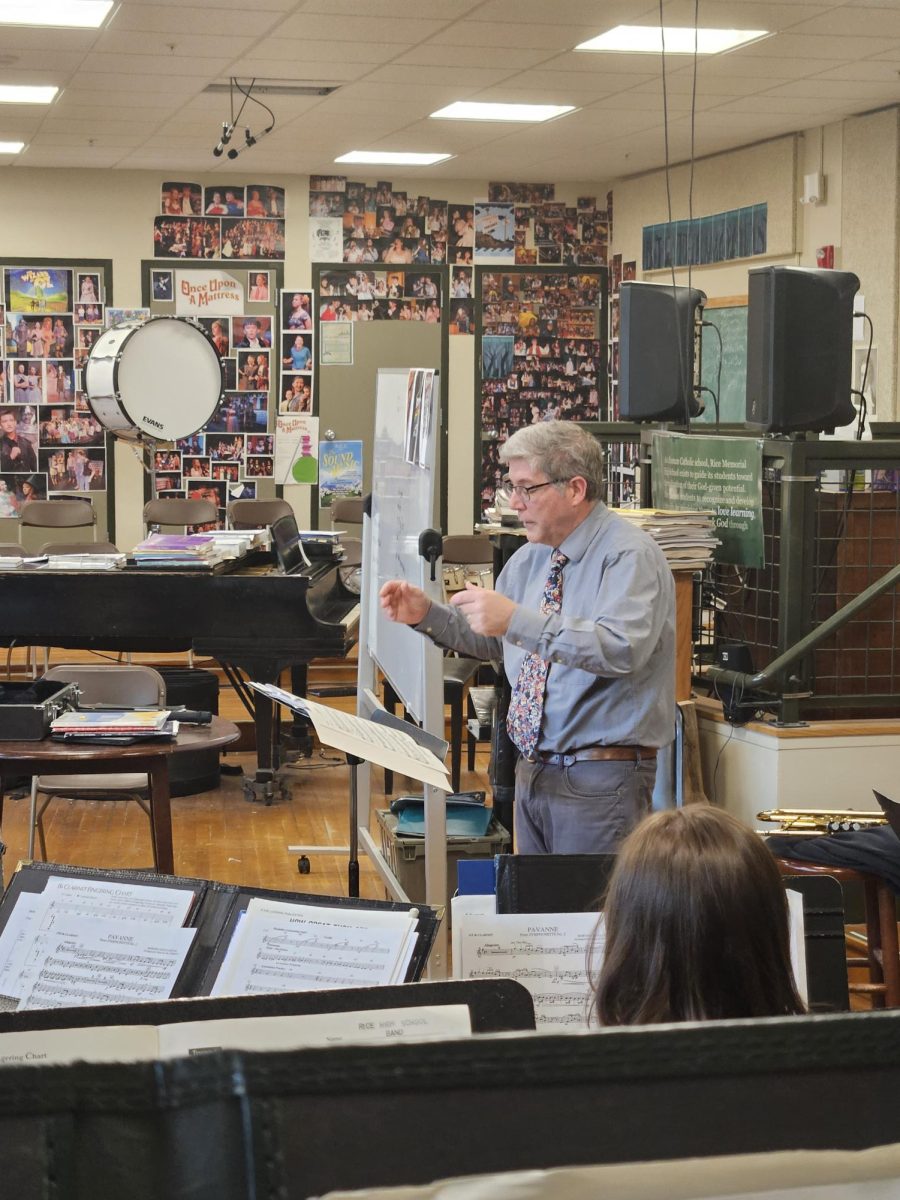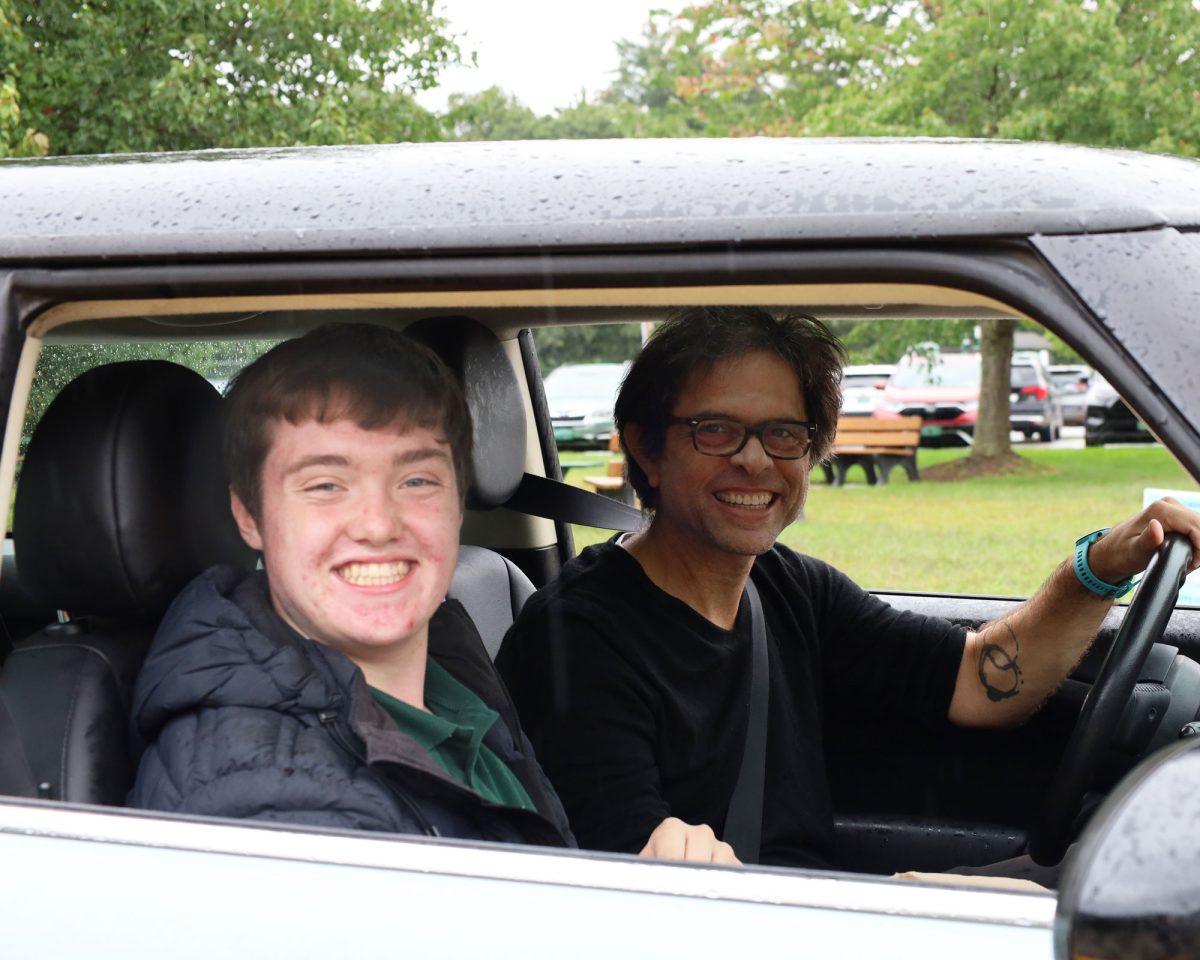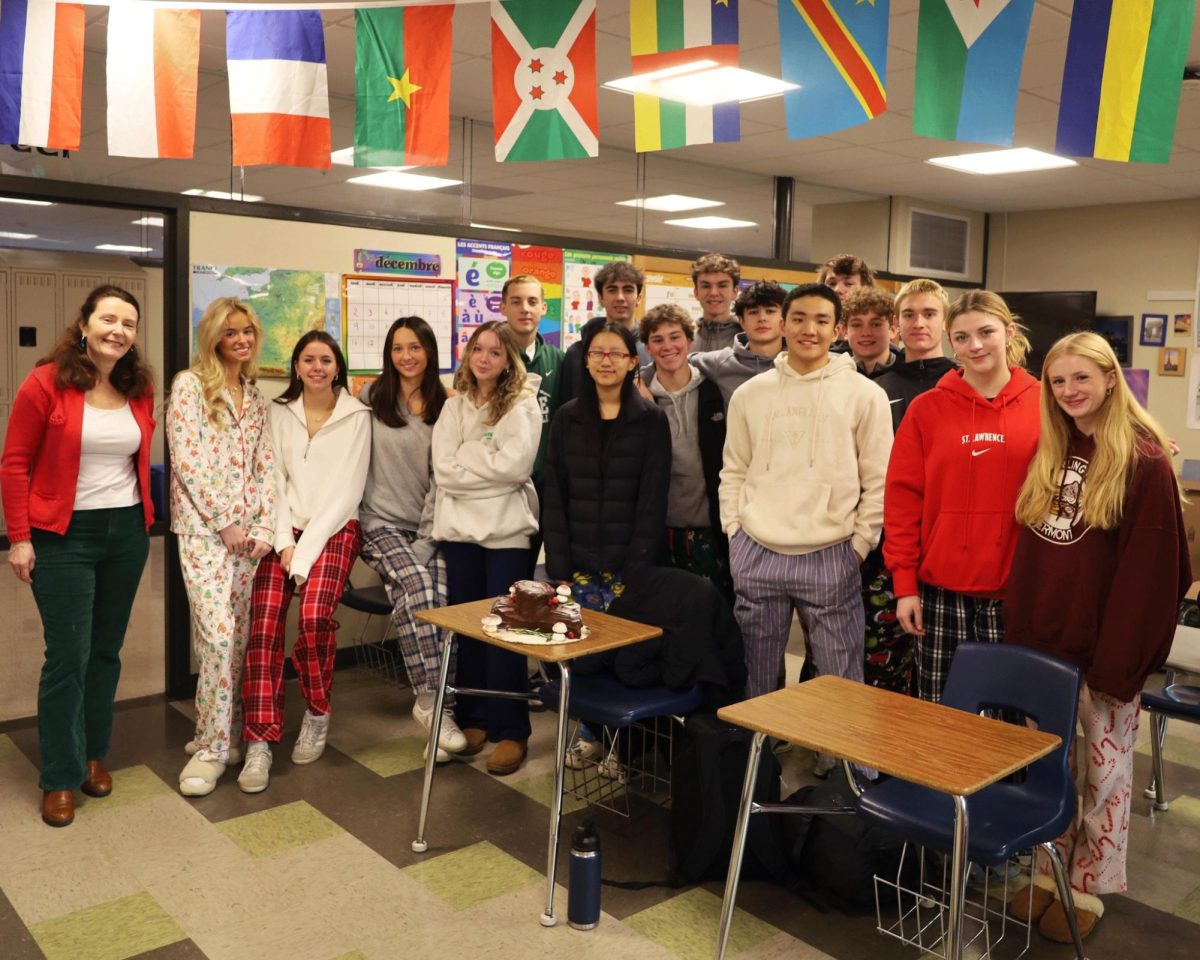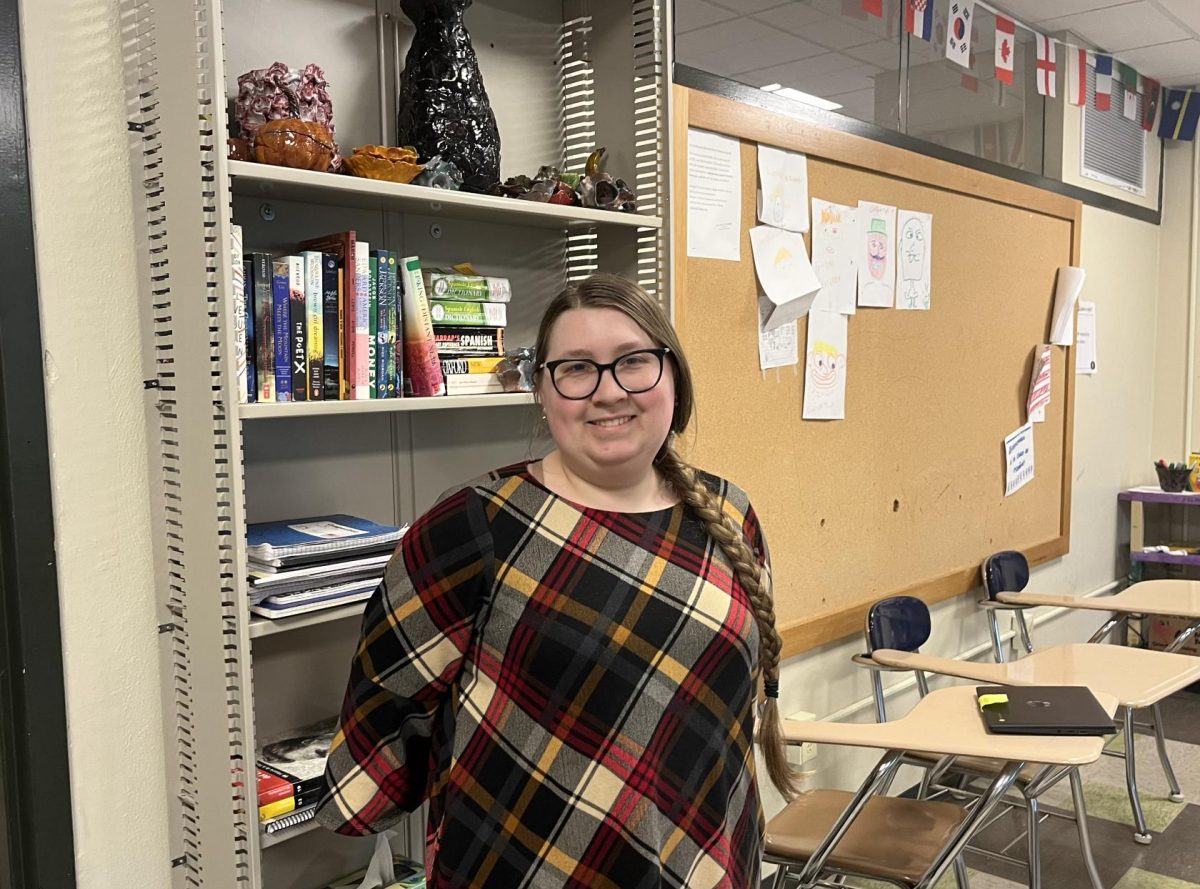Kevin Ginter is the head of the Rice music department, along with the lead drumline coach, head of the Rice drama department, and more. He has done so much for Rice in the seven years he has worked here, and is both a friend and a teacher to many of his students. His experience with the musical field spans more than just his time at Rice, having taught at Christ the King School in Burlington for five years before, and performing in professional plays and drama productions in the years prior.
Beyond Rice, Kevin is a father of four children, ranging from ages 5 to 2. He loves to play baseball with his children, and go to the gym. Even outside of school hours, though, Kevin is still very much involved in the Rice community, running drama performances in both the fall and spring, staying late for drumline practices, and attending events such as the All-State and New England music festivals.
Why did you choose Rice as opposed to other schools?
Well, I was teaching, as you know, I was teaching at Christ the King, and it just worked out that they needed a music teacher to help fill in for a little bit, and then they decided to increase the music department and make it a full time position. I was teaching at Christ the King at the time, but I just prefer to work with older students, just because the repertoire that we work on is more complex and just something that I enjoy teaching that older age, and seeing that vocal development getting ready for that next stage as well. That’s a big reason why I wanted to come and work at Rice. And also Rice is just a great school. [It] has a really good reputation, and in a lot of ways it was really kind of cool coming in the way I did at Rice, because I could kind of build the program in the way I wanted to build it. So we kind of built it from scratch, and could kind of just mold it, and we’re continuing to evolve it as we go, and that’s been really fun for me.
What is your favorite class to teach?
My favorite class to teach is chorus, [but] every year it changes, and sometimes in the semester, it changes, you know, because we have the split groups of Chorus. Each group kind of presents their own challenges and strengths, right? Because, like this, for instance, this year, the first period chorus has all the [voice parts], but it has a smaller amount of sopranos. And in the other period, of course, there aren’t any tenors, right? So we can be more productive in that class sometimes, because we have one less part to learn, but they’re also not hearing it quite the same as the other period of Chorus. But then the other period, your period of chorus, isn’t, or the first period of Chorus isn’t necessarily, hearing all those soprano one parts, because most of the sopranos in that class are soprano two. So finding the time to have everybody together is really helpful. And sometimes I get nervous what a song is going to sound like, but then it always we get everybody together, and always sounds really amazing.
I know you taught during COVID–what were some of your favorite stories about it?
I mean, COVID was just so challenging, first teaching it out of your home, when everything was first shut down, was just terrible. You know, we all, all the music teachers, had to learn how to be video videographers and video editors, and create, trying to create these videos where we are splicing everybody’s voices together, which was a huge challenge, but also provide some cool things that we can look back on now, although that’s not really what we’re trying to do, definitely the first year back in person was interesting because we had to be outside a lot. So I’d say, even though it was really hard at the time, we do kind of look fondly on those memories of running outside to, like, sing a few notes and then run back inside, we also did, like, a lot of humming and things like that inside to learn our part. So it definitely, you know, it challenged us and brought us together in some ways. But it definitely has, has some, some good memories in that way, even though it was challenging.
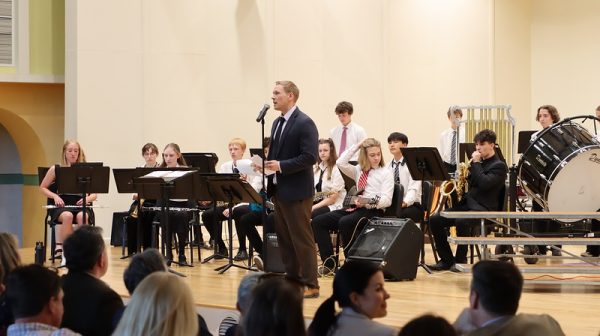
If you told your child self that they’d end up where you are right now, do you think they’d believe you?
I would sure I would believe myself, but I would have wished I had a me to teach me…Just having the vocal training I would have really enjoyed as a high schooler. I didn’t really take any voice lessons until I got to college, and I really wish I had a mentor. That and voice teacher [who] really knew what they were doing that could help me earlier in my journey. That could have helped me.
What is the most important thing you hope your students will take away from your classes?
So my hope is that a few things. I hope that they can have a shared experience that’s really beneficial for them. I think of the chorus and the music department in general as kind of a community within a community that’s supportive, and they just [share] the experience of creating something beautiful together. I think that’s something that’s really special. But I also hope that they have developed skills as an individual as well that helps set them up for more beneficial music experiences, whether that’s their career or not, but even potentially setting them up for potential careers as well. So my hope is that they can just continue to have something that they enjoy coming together and making something beautiful, but also like potentially setting them up for potential careers as well.

